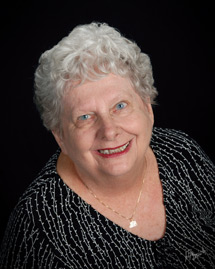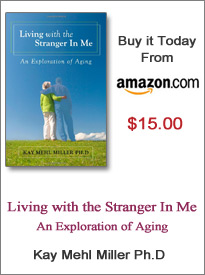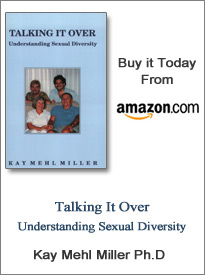Lose weight. How many times have I heard that ominous directive, not only from my doctor’s lips, but from my own guilt-manufacturing neurosis?
I have peacefully reached the stage in life where I am comfortable with the fact that I am overweight—I can’t say the word “obese”— it’s such a nasty word. In my lifetime, I have lost 50 pounds. Three times! It took commitment, money, and time. Each time I’ve lost the weight, I’ve kept it off for three years, and, then, voila, not only the pounds I lost came roaring back, but extra pounds appeared as well! Obviously, this happening is a warning never, ever again, to consciously lose weight.
Up to now, I’ve been able to accept my overweight self as I am, but fate has intervened. I’ve been struggling to walk with pain in both ankles. My doctor diagnosed the condition as tendonitis and gently suggested, once more, that I lose weight to relieve pressure on my joints. I heard the doctor this time and decided, yes, I would lose weight. Not try to lose weight, but actually lose weight.
As most persons who have dieted know, the programs designed for losing weight do work if diligently worked. It has been true for me that if I pay for something, I follow instructions, so I have had success with these programs. However, there is that three-year bugaboo lurking in my head. I need some plan to have hope of keeping my weight reasonable for the rest of my life, a plan that I can commit to without penalties or extra motivation, a plan that is based on easing the pain in my joints.
As is my custom, I start with prayer. Lead me not into temptation is a good one. Also, guide me as I once again begin a new adventure.
I decide that I will eat only at meal times. I’ll eat what I want and stop when the plate is empty. Before I sit down, I’ll gather everything except coffee and dessert, but I will decide on what dessert I will eat. If I feel satisfied without dessert, I will skip it.
I notice that my younger son has taken up the habit of eating large quantities of vegetables. Hmm. Vegetables. Plants are a source of medicine, I reason. Dr. Oz talks of the benefits to the body of certain vegetables. Hmm. I like vegetables.
I buy pounds of vegetables at my local warehouse store. I began with a huge helping of broccoli at supper, a generous dollop of sour cream, plus three baby cucumbers, a couple of thin slices of fresh yellow peppers, and a baby portabella mushroom with my entrée of leftover pot roast. A glass of water and a cup of coffee—without cream, another decision—and a chocolate-covered ice cream bar complete the meal. I am satisfied.
For breakfast, I begin eating the pickled herring in sour cream I bought for good luck at New Year’s and I add more broccoli, a few saltines, a banana, coffee and water.
Lunch becomes a fresh salad of Romaine lettuce with celery, cucumber, green onion, mushroom, and cherry tomatoes, the water to drink, and an apple. Plain yogurt and fresh blueberries is my dessert.
Those are my basic meals with variation in vegetables, fruits and meats. I also have a potato with the main meal or bread when the mood strikes me, especially if I have an egg in the morning.
I’ve added a short walk in the morning during which I look for something on which to focus my gratitude. The first morning two flocks of Canada geese honked noisily as they flew over my head. On another morning, I noticed how starkly beautiful a tree was, silhouetted against a blue sky. Still, on another walk, the cool breeze caressed my face and rattled the spikey leaves of a rosemary bush. I’ve decided the purpose of the walk is not to exercise, but to fill myself with the joy of creation each day. I know how fortunate I am to be alive and reasonably healthy.
So far, I am doing well. I’ve dropped a couple of pounds, which doesn’t seem as important as the way I feel. I notice that my digestive system is quieter as is my mind. I am not obsessing on eating something salty or sweet. I reserve the right to do that at mealtimes; I haven’t yet wanted those foods. I feel more focused and less harried by everyday tasks. My ankles, aided by some treatment and lots of stretching are less painful. And, look! I’ve found time for my passion, writing. By losing weight, I just may be gaining a renewed self.




